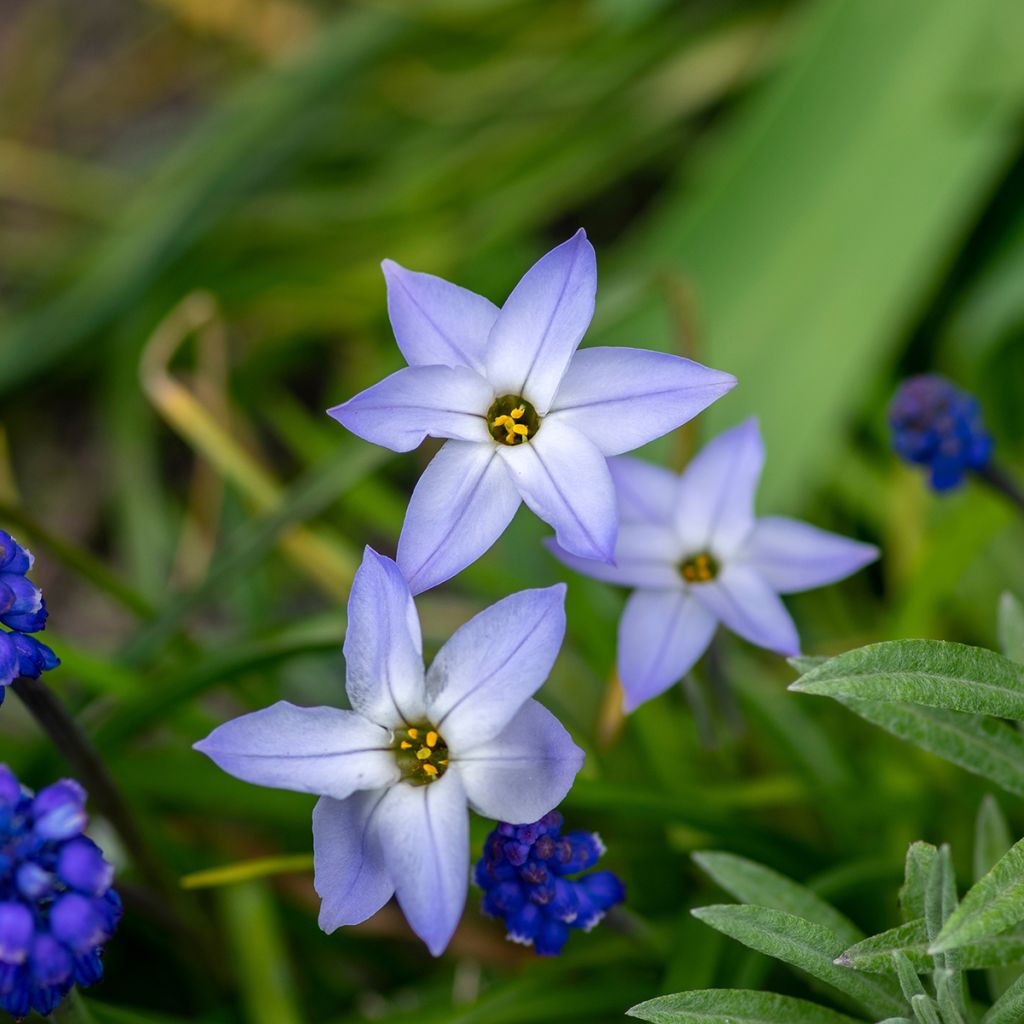

Ipheion uniflorum Wisley Blue
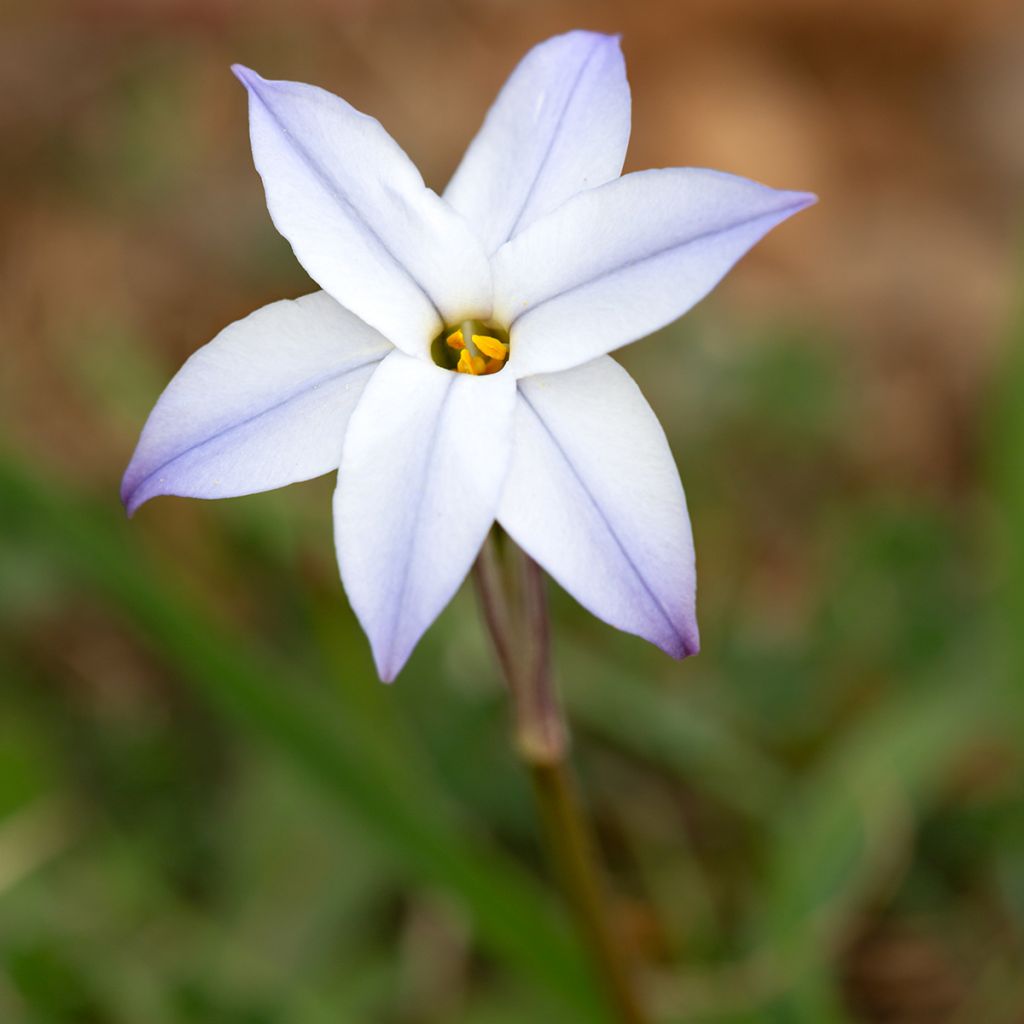

Ipheion uniflorum Wisley Blue
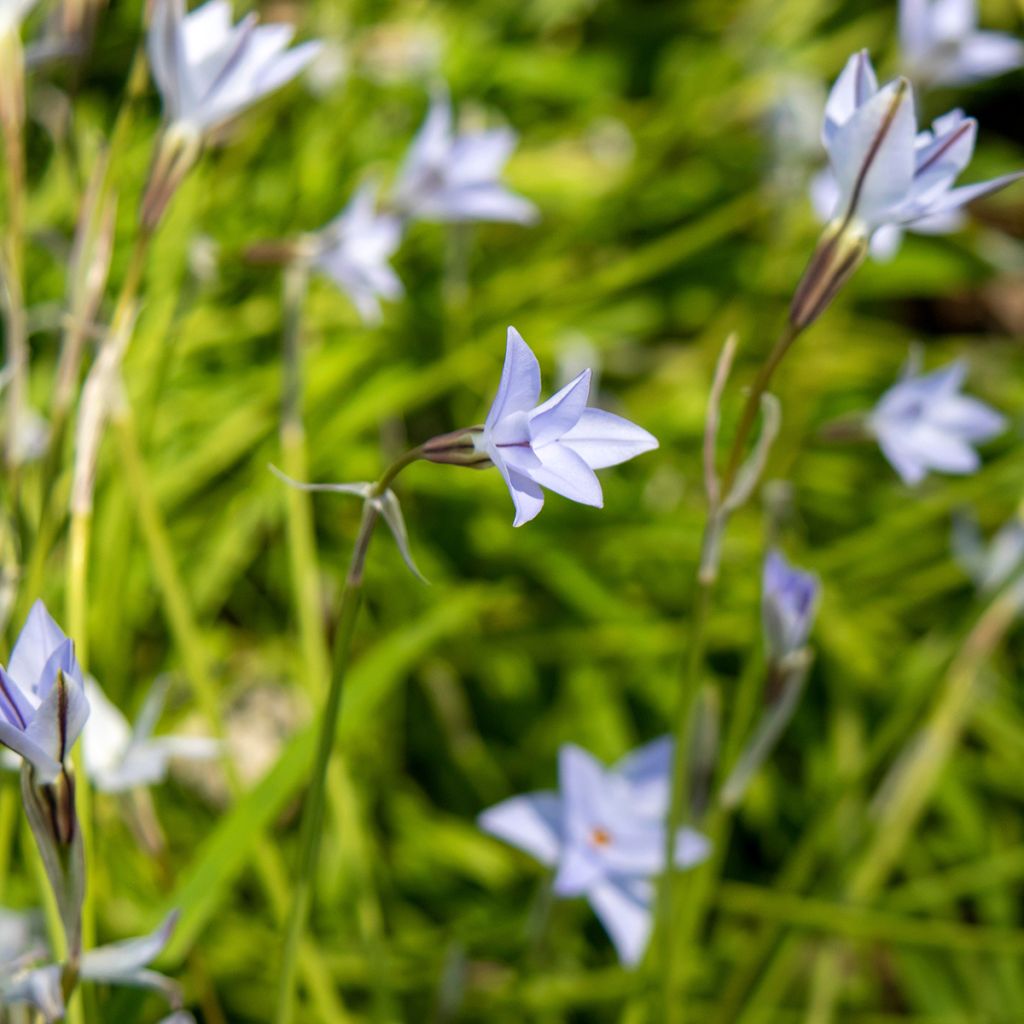

Ipheion uniflorum Wisley Blue
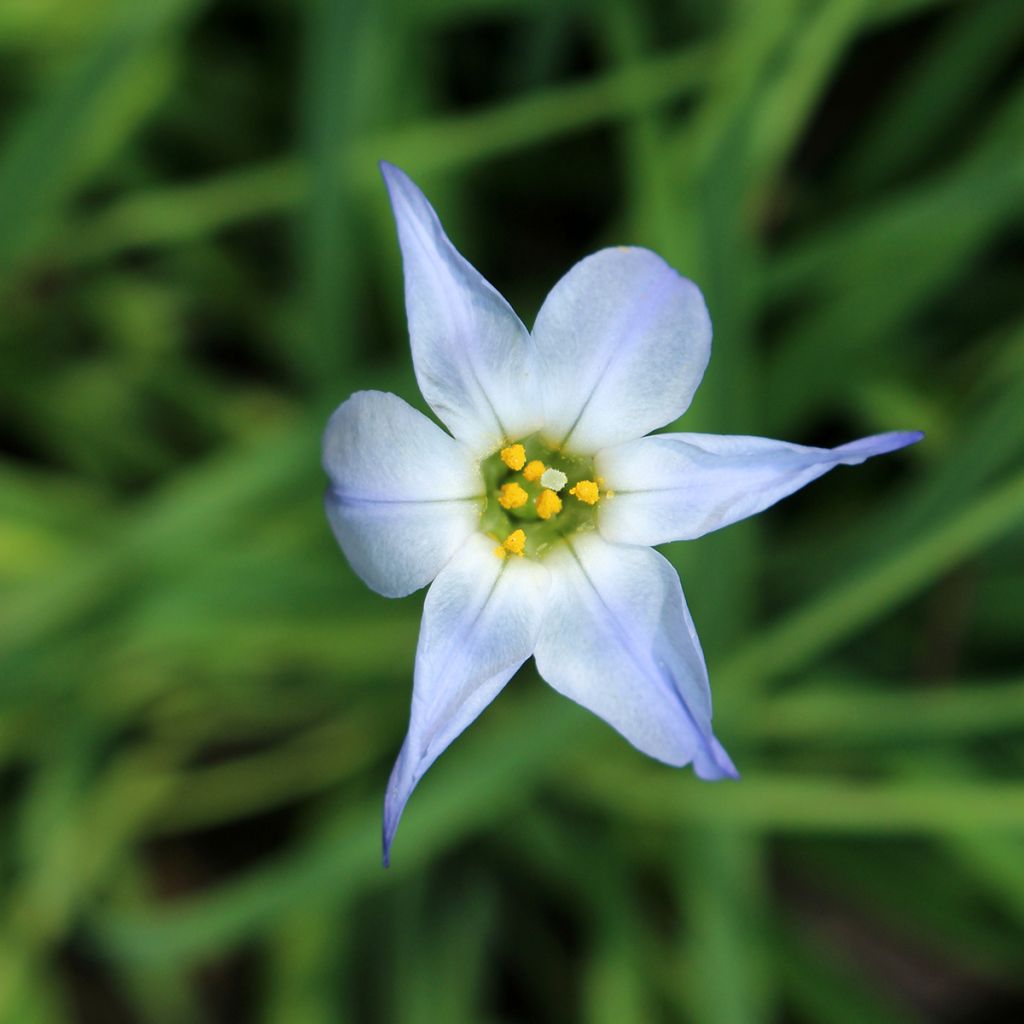

Ipheion uniflorum Wisley Blue
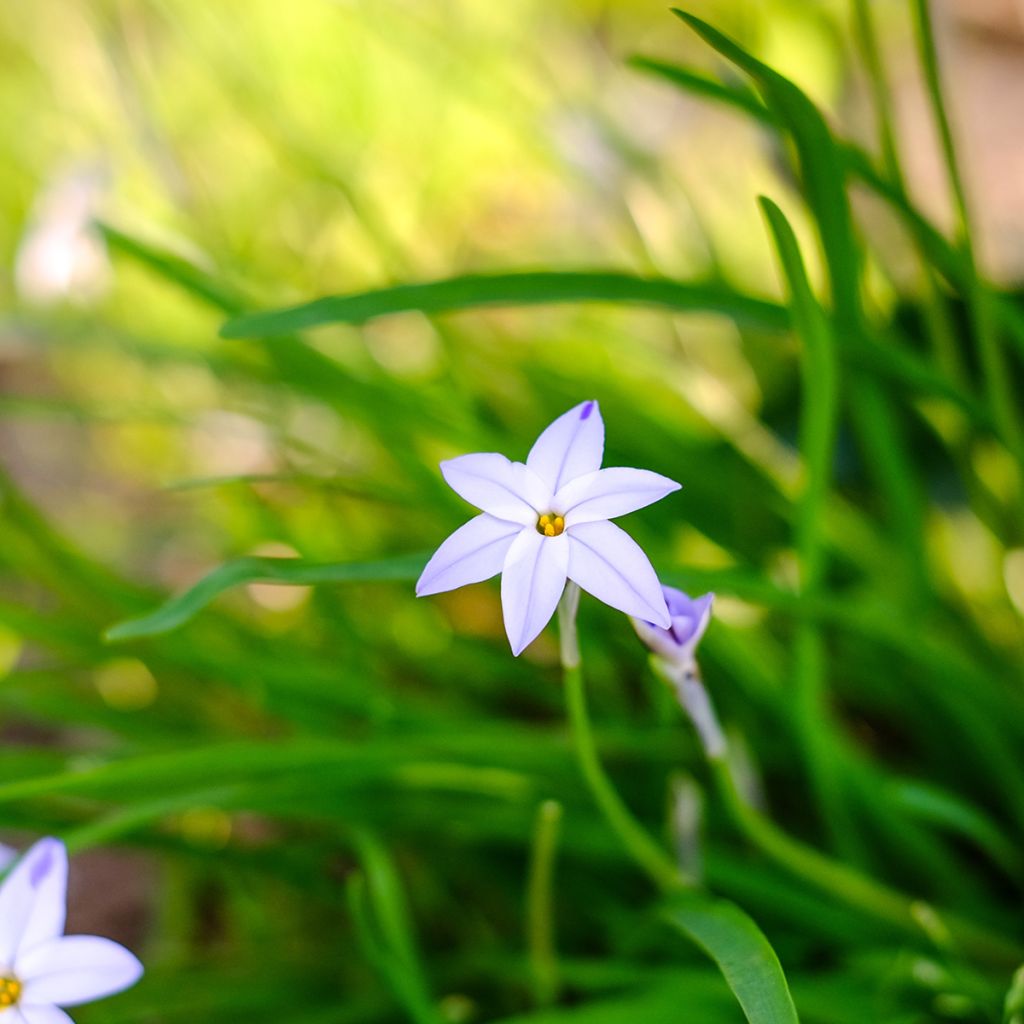

Ipheion uniflorum Wisley Blue
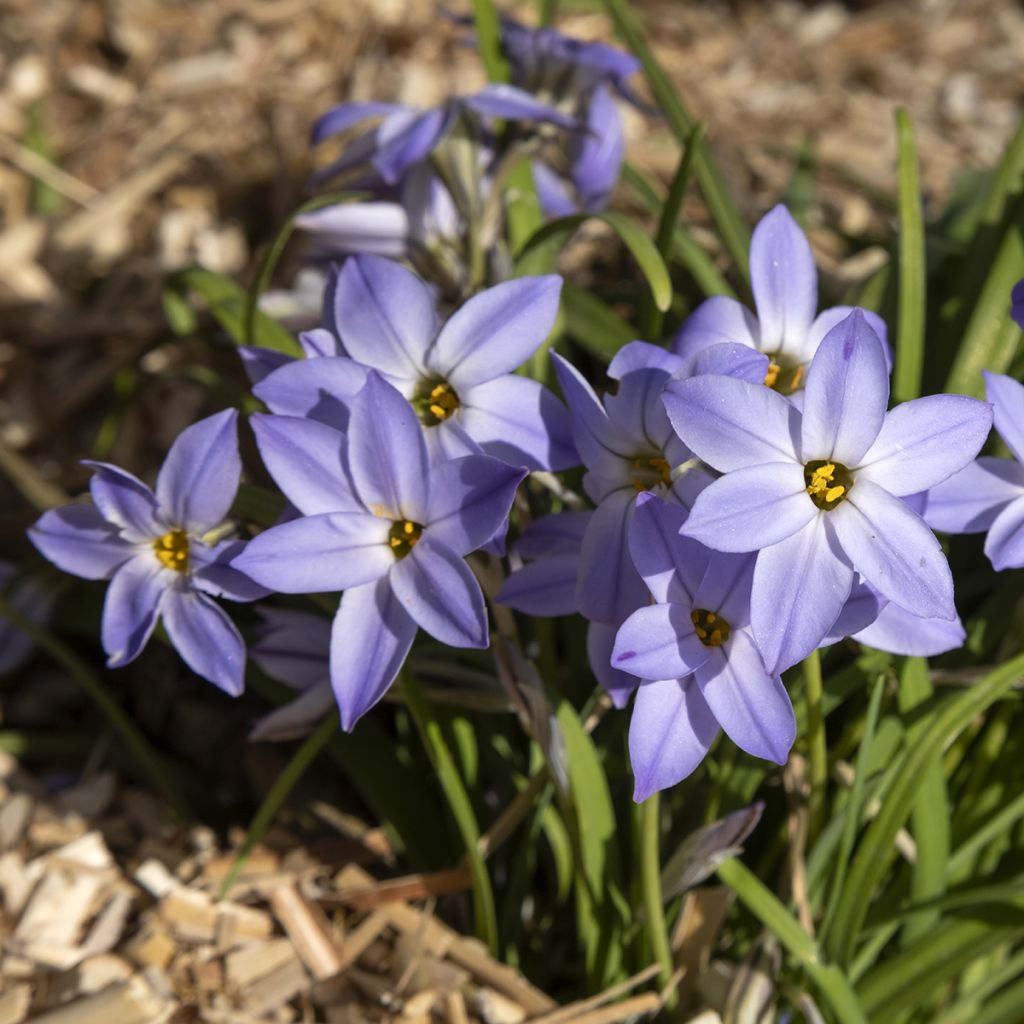

Ipheion uniflorum Wisley Blue
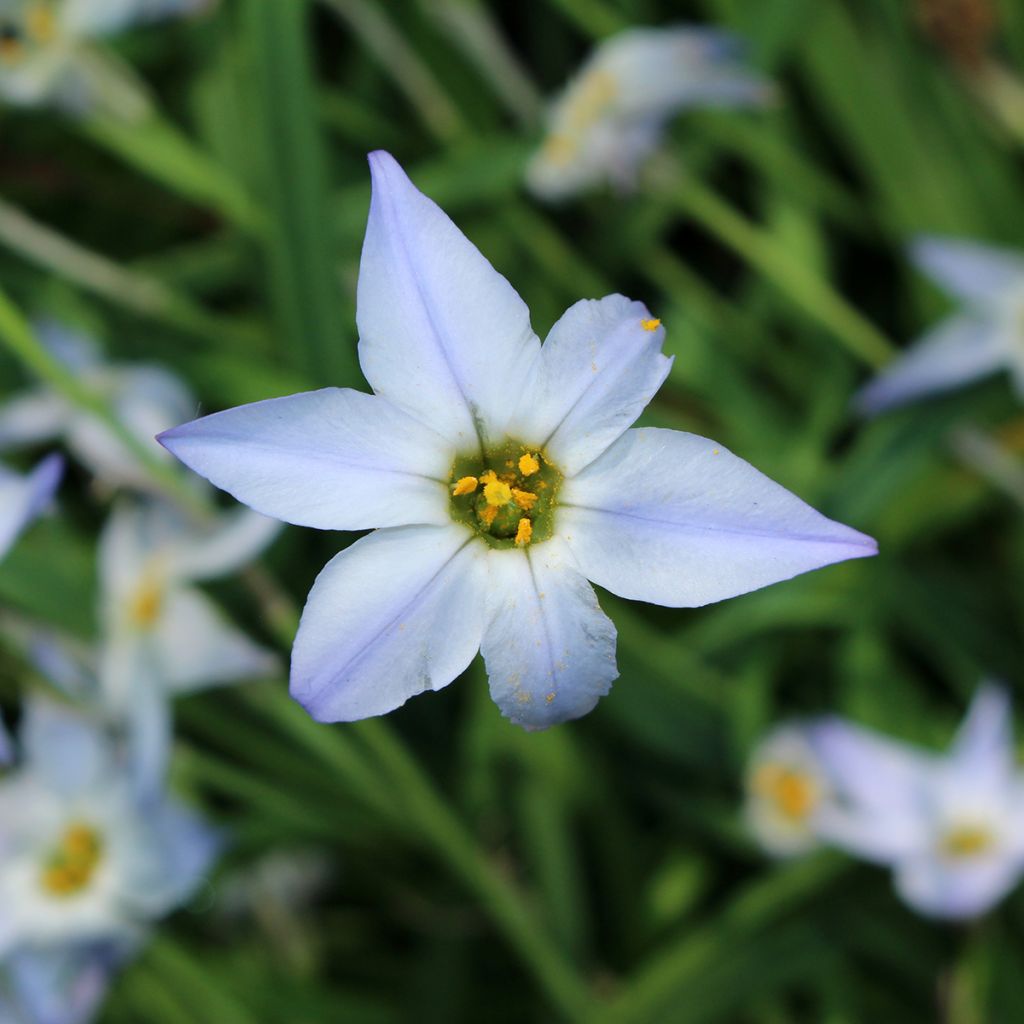

Ipheion uniflorum Wisley Blue
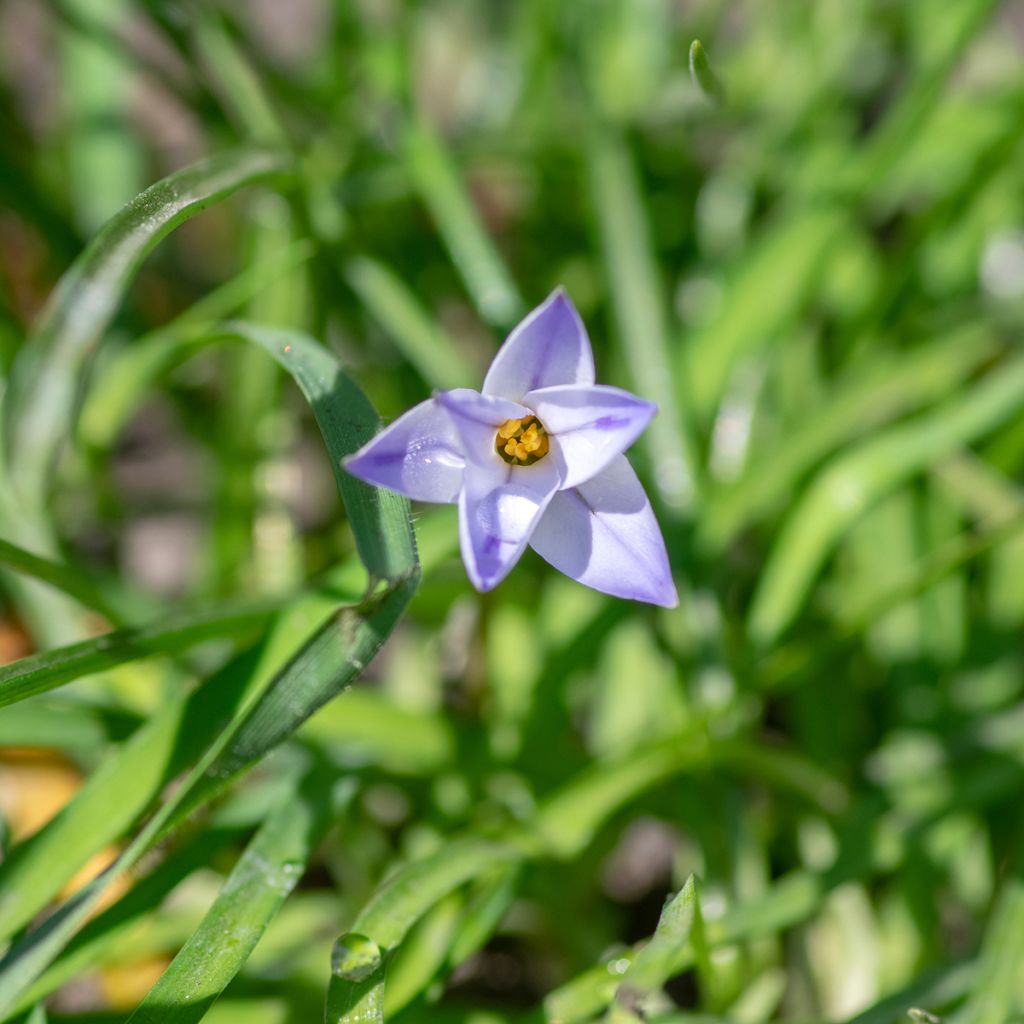

Ipheion uniflorum Wisley Blue
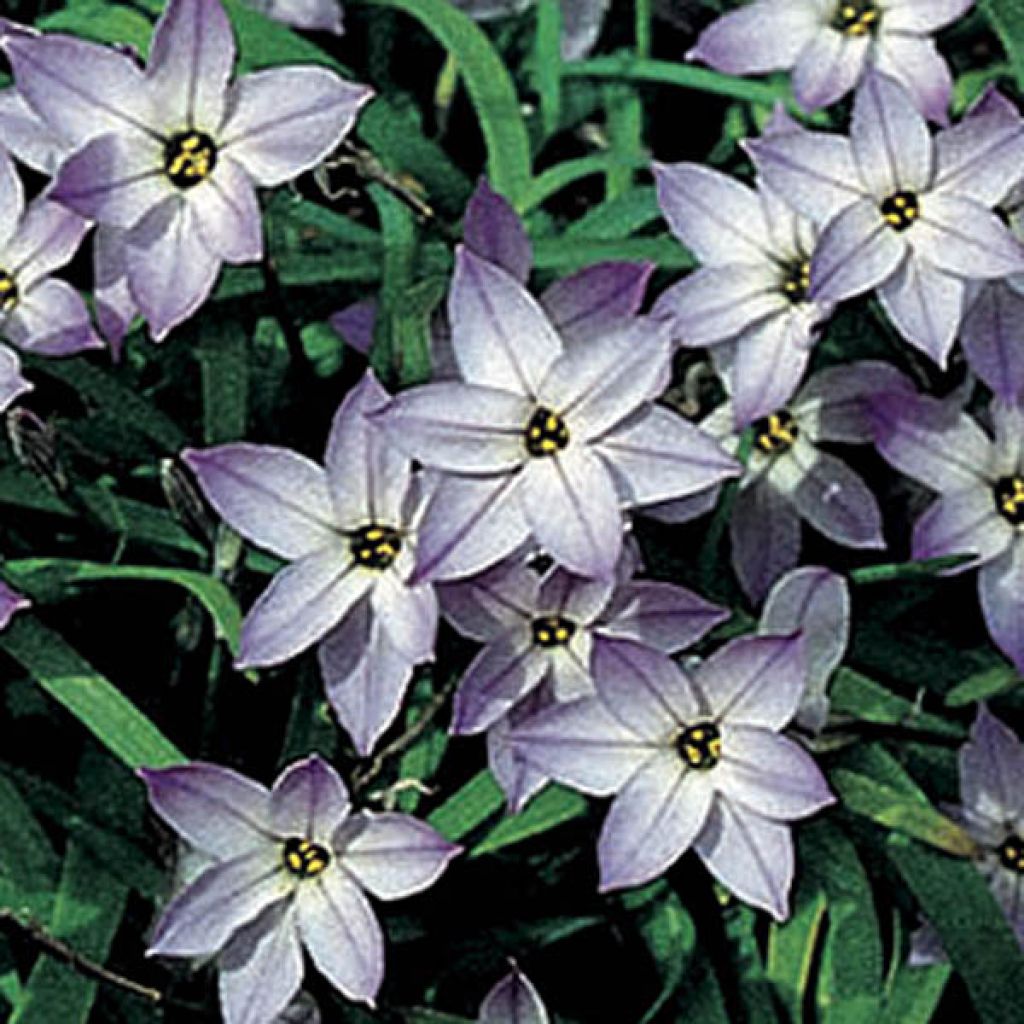

Ipheion uniflorum Wisley Blue
Ipheion uniflorum Wisley Blue
Ipheion uniflorum Wisley Blue
Springstar, Spring Starflower
Planted at the foot of climbing jasmines, they delicately announce the arrival of spring. Very subtle color.
Marie, 11/05/2025
Special offer!
Receive a €20 voucher for any order over €90 (excluding delivery costs, credit notes, and plastic-free options)!
1- Add your favorite plants to your cart.
2- Once you have reached €90, confirm your order (you can even choose the delivery date!).
3- As soon as your order is shipped, you will receive an email containing your voucher code, valid for 3 months (90 days).
Your voucher is unique and can only be used once, for any order with a minimum value of €20, excluding delivery costs.
Can be combined with other current offers, non-divisible and non-refundable.
This plant carries a 6 months recovery warranty
More information
We guarantee the quality of our plants for a full growing cycle, and will replace at our expense any plant that fails to recover under normal climatic and planting conditions.


Would this plant suit my garden?
Set up your Plantfit profile →
Description
The Ipheion uniflorum Wisley Blue is the most well-known variety of Ipheion, a small bulbous plant with star-shaped flowers in a delicate shade of lilac-blue, which are brightly coloured and delicately scented. It truly lives up to its name of spring star. They bloom from March to May on a light green-blue carpet reminiscent of coarse grass. This small, seemingly simple bulbous plant is prolific, undemanding, and goes dormant in summer, only to awaken with the return of September-October rains, sometimes producing more flowers in autumn. The clumps triple in size each year, and the flowering becomes increasingly spectacular in all exposures.
The Ipheion uniflorum or Tristagma uniflora is a small, seemingly simple bulbous plant native to South America (specifically the meadows and rocky areas of Argentina). It is classified in the lily family, along with garlic and onions, among others. The 'Wisley Blue' cultivar is a fairly old selection, awarded in England, widely cultivated in gardens for its pretty stars that combine different shades of light blue, appearing brighter in the sun and paler in the shade. The bulb produces a clump of linear, pale blue-green leaves, with an upright habit and a height of 15 to 20 cm (6 to 8in) when in flower. They will completely disappear in summer.
In late winter (February-March), solitary flowers emerge, with a honey-like scent, measuring 2 to 4 cm (1 to 2in) in diameter, blue in colour, lighter in the center, with a black heart contrasting with yellow stamens. They are directed upwards and take the form of stars, composed of 6 narrow petals. In cold climates, its long flowering begins at the same time as the first crocuses, reaching its peak in March and April, and ending in May with the arrival of summer heat. In mild climates, the flowering period spans from December to May. Very hardy in well-drained soil, this plant needs dry and warm summers. It multiplies very rapidly through the production of numerous bulblets.
The 'Wisley Blue' Ipheion pairs well with the Muscari armeniacum, Sternbergia lutea, or Zephiranthes candida, for example, two other equally easy-to-grow small bulbous plants. It can also be planted under deciduous shrubs, accompanied by perennials or narcissus bulbs to create a layered effect. It spreads in borders, rocky areas, at the front of flower beds, along well-exposed walls, or even in pots. If you wish to make bouquets, pick the flowers as soon as they open. Ipheion is also an excellent ground cover, in all exposures, sometimes becoming invasive.
Report an error about the product description
Ipheion uniflorum Wisley Blue in pictures
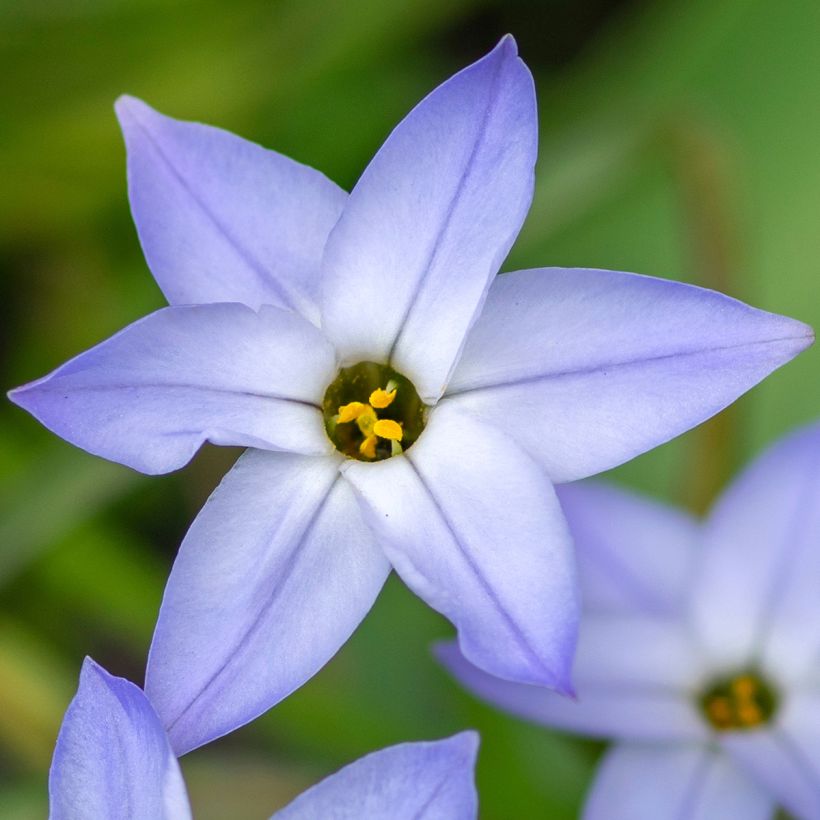

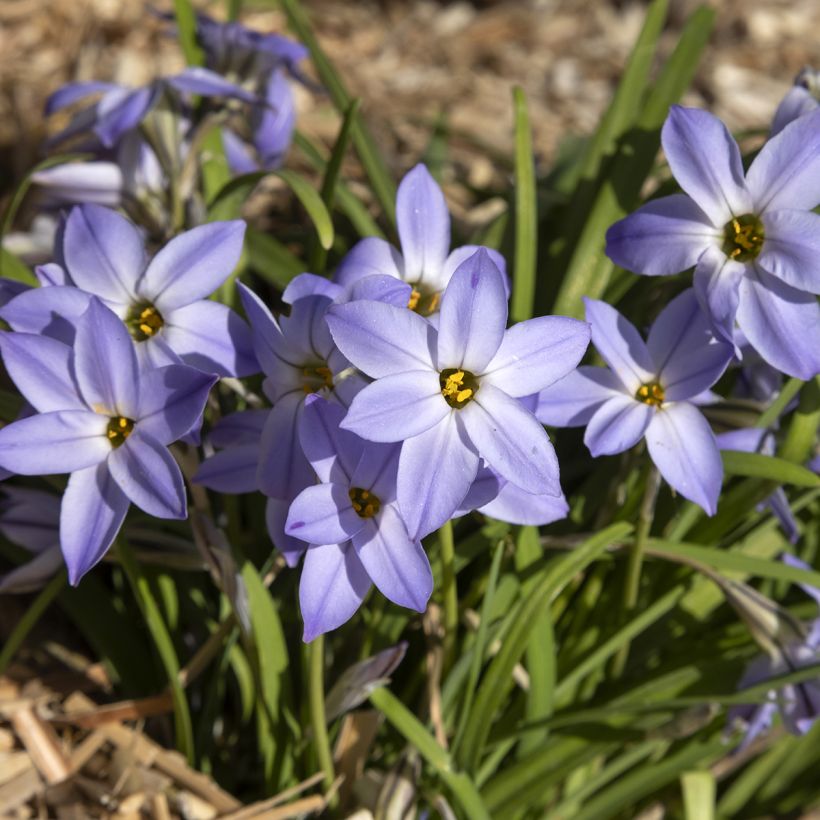

Plant habit
Flowering
Foliage
Botanical data
Ipheion
uniflorum
Wisley Blue
Liliaceae
Springstar, Spring Starflower
Cultivar or hybrid
Planting and care
Plant the Ipheion uniflorum 'Wisley Blue' bulbs in autumn in a sunny or semi-shady position, or even in the shade where they will still flower but show a paler colour. Plant them in a fairly rich, well-drained soil, at a depth of 8 cm (3in), spacing the bulbs 8 cm (3in) apart. They do not require any special maintenance. You can incorporate them into a rockery. During their growth period, make sure to water them once or twice a week and provide liquid fertilizer once a month in a pot, if necessary. During the dormant period in summer, leave them alone, they should not be watered. In colder regions, provide protective mulch. Protect them from slugs and snails, which love young shoots.
Planting period
Intended location
Care
-
, onOrder confirmed
Reply from on Promesse de fleurs
Haven't found what you were looking for?
Hardiness is the lowest winter temperature a plant can endure without suffering serious damage or even dying. However, hardiness is affected by location (a sheltered area, such as a patio), protection (winter cover) and soil type (hardiness is improved by well-drained soil).

Photo Sharing Terms & Conditions
In order to encourage gardeners to interact and share their experiences, Promesse de fleurs offers various media enabling content to be uploaded onto its Site - in particular via the ‘Photo sharing’ module.
The User agrees to refrain from:
- Posting any content that is illegal, prejudicial, insulting, racist, inciteful to hatred, revisionist, contrary to public decency, that infringes on privacy or on the privacy rights of third parties, in particular the publicity rights of persons and goods, intellectual property rights, or the right to privacy.
- Submitting content on behalf of a third party;
- Impersonate the identity of a third party and/or publish any personal information about a third party;
In general, the User undertakes to refrain from any unethical behaviour.
All Content (in particular text, comments, files, images, photos, videos, creative works, etc.), which may be subject to property or intellectual property rights, image or other private rights, shall remain the property of the User, subject to the limited rights granted by the terms of the licence granted by Promesse de fleurs as stated below. Users are at liberty to publish or not to publish such Content on the Site, notably via the ‘Photo Sharing’ facility, and accept that this Content shall be made public and freely accessible, notably on the Internet.
Users further acknowledge, undertake to have ,and guarantee that they hold all necessary rights and permissions to publish such material on the Site, in particular with regard to the legislation in force pertaining to any privacy, property, intellectual property, image, or contractual rights, or rights of any other nature. By publishing such Content on the Site, Users acknowledge accepting full liability as publishers of the Content within the meaning of the law, and grant Promesse de fleurs, free of charge, an inclusive, worldwide licence for the said Content for the entire duration of its publication, including all reproduction, representation, up/downloading, displaying, performing, transmission, and storage rights.
Users also grant permission for their name to be linked to the Content and accept that this link may not always be made available.
By engaging in posting material, Users consent to their Content becoming automatically accessible on the Internet, in particular on other sites and/or blogs and/or web pages of the Promesse de fleurs site, including in particular social pages and the Promesse de fleurs catalogue.
Users may secure the removal of entrusted content free of charge by issuing a simple request via our contact form.
The flowering period indicated on our website applies to countries and regions located in USDA zone 8 (France, the United Kingdom, Ireland, the Netherlands, etc.)
It will vary according to where you live:
- In zones 9 to 10 (Italy, Spain, Greece, etc.), flowering will occur about 2 to 4 weeks earlier.
- In zones 6 to 7 (Germany, Poland, Slovenia, and lower mountainous regions), flowering will be delayed by 2 to 3 weeks.
- In zone 5 (Central Europe, Scandinavia), blooming will be delayed by 3 to 5 weeks.
In temperate climates, pruning of spring-flowering shrubs (forsythia, spireas, etc.) should be done just after flowering.
Pruning of summer-flowering shrubs (Indian Lilac, Perovskia, etc.) can be done in winter or spring.
In cold regions as well as with frost-sensitive plants, avoid pruning too early when severe frosts may still occur.
The planting period indicated on our website applies to countries and regions located in USDA zone 8 (France, United Kingdom, Ireland, Netherlands).
It will vary according to where you live:
- In Mediterranean zones (Marseille, Madrid, Milan, etc.), autumn and winter are the best planting periods.
- In continental zones (Strasbourg, Munich, Vienna, etc.), delay planting by 2 to 3 weeks in spring and bring it forward by 2 to 4 weeks in autumn.
- In mountainous regions (the Alps, Pyrenees, Carpathians, etc.), it is best to plant in late spring (May-June) or late summer (August-September).
The harvesting period indicated on our website applies to countries and regions in USDA zone 8 (France, England, Ireland, the Netherlands).
In colder areas (Scandinavia, Poland, Austria...) fruit and vegetable harvests are likely to be delayed by 3-4 weeks.
In warmer areas (Italy, Spain, Greece, etc.), harvesting will probably take place earlier, depending on weather conditions.
The sowing periods indicated on our website apply to countries and regions within USDA Zone 8 (France, UK, Ireland, Netherlands).
In colder areas (Scandinavia, Poland, Austria...), delay any outdoor sowing by 3-4 weeks, or sow under glass.
In warmer climes (Italy, Spain, Greece, etc.), bring outdoor sowing forward by a few weeks.






























